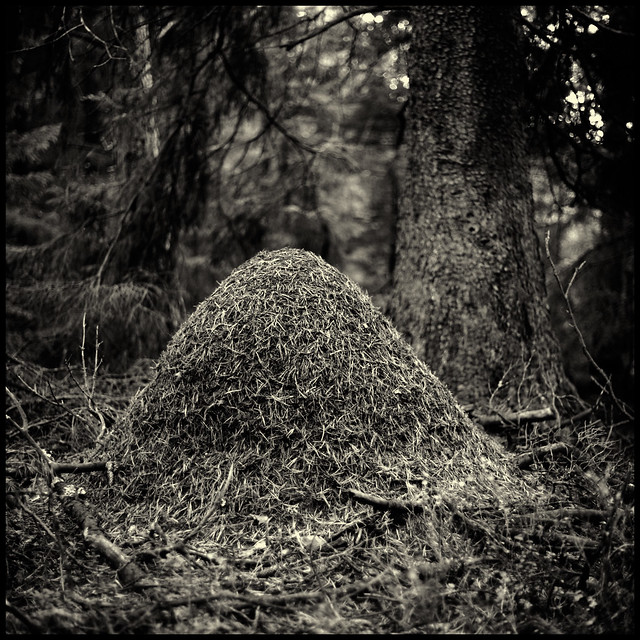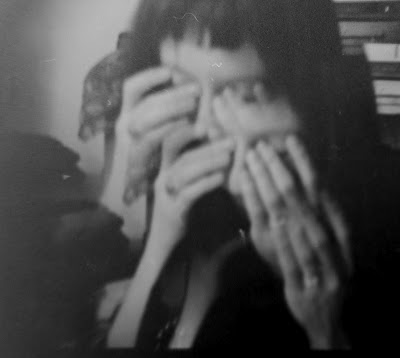Talk by Grant Hutchinson, notes by MH (with errancies, mishearings, conjectures). This is talk 6 of 6 on Dogen’s 12th century Japanese text Mountain and River Sutra in Feb/March/April 2012. Centre of Gravity, 180 Sudbury Street, Toronto. www.centreofgravity.org
Words
Dogen uses language to talk abut what can’t be talked about. Sometimes, when we enter into conversation with these centuries old monks, it’s necessary to listen less with our intellect than with our whole body. Then we can learn to use words that are at the very edge of language. Always threatening to fail, to turn into sounds, into non-meaning. Dogen challenges us to use language to shake up meaning so we can arrive at what is actually happening in our lives.
When Dogen talks about water it is sometimes a jewel, or blossoms or walls. Hungry ghosts perceive water as pus and blood, raging fires even. In other words, the object of perception is mutable and changing, and so are we, and so are our sense organs. As a result, we all perceive the same things differently.
The great mystery of what our lives are is often expressed through language. We tend to create houses, Dogen names them palaces, to fix meaning. We get stuck in the structures of these buildings. The scaffolds of family, of relationship, of leisure time happiness.
Dogen: “Now, when dragons and fish see water as a palace, it may be like human beings seeing a palace. They may not think it flows. If an outsider tells them, “What you see as a palace is running water,” the dragon and fish may be astonished, just as we are when we hear the words Mountains flow. Nevertheless, there may be some dragons and fish who understand that the railings and pillars of palaces and pavilions are flowing water.”

Burning House
Perhaps we could rub these words up against the recent talk that Roshi Pat Enkyo O’Hara gave here at Gravity about the burning house parable in The Lotus Sutra. It’s about the ways we get stuck. A parent comes back to their house and sees that it’s on fire. There are many children in the house playing, so absorbed in their games that they take no notice of the fire, and ignore their fathers pleas to leave. Finally he remembers that, like all kids, they adore carts, so he promises them their fave carts, and at this they rush outside to claim them. The door to the house is narrow, they can hardly squeeze through, but they wind up on the other side where dear old dad builds each of them a fine ox cart stuffed with presents and musicians. The ox cart represents the safety and embrace of the dharma. Did the father betray his kids by lying to them or was this use of upaya, skilfull means, necessary? Sometimes in order to move into new patterns we have to betray our old ways of living.

Fire
What is the fire? This life may seem to be stable, but this is a delusion. If the ox cart is an aim or ambition, a destination even, then it is also another burning house. The cart is also burning, particularly if it’s considered a prize. All houses are burning, this is the nature of houses. It is only through practice that we can shift our relation to these burning houses. Change our relation to change. Accept the radical contingency of this moment.
Skandha
In The Fire Sermon, the Buddha says that form, feeling, perception, volitional formations and perception (the five skandhas) are burning. If we try to build a house, it’s already on fire. The skandhas are aggregates or heaps that serve as objects of clinging, typically used to ground the self. Instead of “to thine own self be true,” “to thine own skandha be true.” But which one?

Knapsack
When we leave the burning house, squeezing out of its narrow doorway, we often head back into another burning house. We can’t actually leave our life. Have you ever thought this? If only I can get out of my job, my suboptimal relationship, my less than perfect family. Then things would be better. Whether it’s the house we’re living in or the self image we’re living in, the house is attached to us like a knapsack. Practice helps us unpack the knapsack. Practice has the power to affect the way these patterns unfold into our lives and also allows us to hold them with more compassion. Some of the contents in the knapsack won’t really change over time. But our views about them can change.
Dogen: “Nevertheless there may be some dragons and fish who understand that the railings and pillars of palaces and pavilions are flowing water. Quietly reflect and ponder the meaning of this. If you do not learn to penetrate your superficial views, you will not be free from the body and mind of an ordinary person. Then you will not thoroughly experience the land of the Buddha ancestors, or even the land or the palace of ordinary people.”
Mirrors
Perhaps he is saying that if we can’t work free of our stuck views, not only will we not see the complexity of our inter-related lives – the way we are connected with everyone and everything – but all we’re doing is projecting our ideas onto a world of glassy surfaces. Lost in a carnival of mirrors. Oh, your face. Is that me too? The burning house is dangerous because we can’t see the burning. Often we can’t tell we’re trapped in views of our superficial selves, even though we might be suffering, we’re probably getting something out of our suffering, the slow and reliable drip of misery.
Fire can also be regeneration. Forests need fire in order to regrow. Perhaps Wall Street needs a fire.
We’re not looking to relinquish our views but to multiply them. I flow differently than you. We are unique manifestations of the flow. Practice creates space so we can notice and appreciate our differences. Our lives can be a play of revelation and concealment.
Dogen: “Even if you understand mountains as the realm where all buddhas practice, this understanding is not something to be attached to. Even if you have the highest understanding of mountains as all buddhas’ wondrous characteristics, the truth is not only this. These are conditioned views. This is not the understanding of buddha ancestors, but merely looking through a bamboo pipe at a corner of the sky.”
If you have the deepest and most profound experience, you’re only seeing a corner of the experience. Of this moment. To trust the sense doors means to be looking through a bamboo pipe at the sky. Keep looking! Keep practicing! Keep walking! Keep walking!
Dogen’s words flow, sweeping away all certitudes. Every action is related, every understanding is not a full understanding. Sometimes a burning house is a walking mountain. If you’re lying down at night and smoking a cigarette and it’s setting fire to the polyester bedspread it’s time to put out the fire, no need to contemplate the patterns of dissolution.
Tree by Jane Hirshfield
It is foolish
to let a young redwood
grow next to a house.
Even in this
one lifetime,
you will have to choose.
That great calm being,
this clutter of soup pots and books –
Already the first branch-tips brush at the window.
Softly, calmly, immensity taps at your life.
Tapping
The Roshi translated “dharma” as “things as they are.” When immensity taps at your life – how do you meet that? How do you be with things as they are? Eventually everything is tapping. Tuesday taps Wednesday. The Keystone XL pipeline is tapping all of us. Can we hear the music?
Water exists inside fire, mind and discernment. It reaches inside Buddha nature. Water flowing is also your life flowing, it’s tapping at your life. Immensity is tapping at immensity.

Itchy by Elaine Jackson
Mosquitoes are sentient
serving them is fire and water
and it chafes at my practice.
To serve is to be itchy
and burn with contradictions
and that noise that refuses
to allow sleep.
Let us awaken
up roasting marshmallows
also sentient
served blackened and sweet
within a fire.

